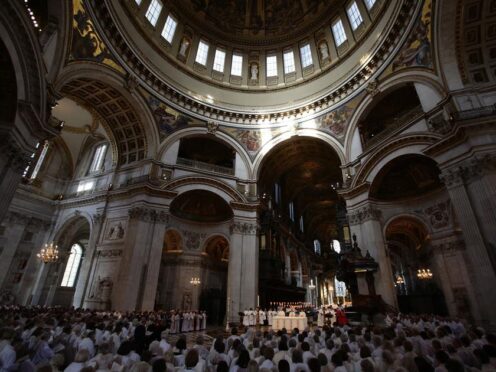The Church of England recognises there may be “mixed motives” when asylum seekers convert to Christianity, its representative in Parliament has said.
Conservative MP Andrew Selous, who speaks on behalf of the Church Commissioners, also defended the clergy against criticism that migrants were seeking conversion as a means of aiding their applications to remain in the UK.
The issue has come to the political forefront after the case of Clapham alkali attack suspect Abdul Ezedi, who successfully challenged his asylum refusal after converting to Christianity.
Ezedi is believed to have been supported in his claim by someone from a Baptist church, rather than the Church of England, but the case has prompted strong debate on the issue of conversions.
In the Commons, Mr Selous said: “Both archbishops have offered to meet the Home Secretary, and the Church has provided advice and guidance for clergy to consider when dealing with requests for baptism from asylum seekers.
“The guidance does refer to the need for discernment and recognises that there may be mixed motives on the part of asylum seekers requesting baptism.”
Conservative MP Philip Hollobone (Kettering) replied: “Those who are genuinely seeking to convert to Christianity of course should be allowed to do so, but is he aware that there is growing concern in this country that the Church of England, naively at best and deliberately at worst, is being seen to aid and abet asylum seekers to get around the laws of this country and remain in the United Kingdom?”
“Could I urge the Church of England to update its guidance entitled ‘Supporting Asylum Seekers – Guidance for Church of England Clergy’ as soon as possible to make sure that it is in alignment with new legislation passed in this House?”
Mr Selous assured his Tory colleague that the guidance was being updated.

He added: “He is right that clergy will always quite rightly tell everyone they come across about the love of Jesus, but I would also say that clergy don’t determine asylum claims, and I would hopefully reassure him by saying that priests of course are expected to uphold the law, to make truthful representations of character.
“I would also note that in the recent Times investigation of 28 cases heard by the upper tribunal where a claimant cited conversion to Christianity as a reason to be granted asylum only seven were approved, 13 were dismissed and new hearings were ordered in eight other cases.”
But Conservative MPs continued to raise concerns the Church of England had been mired in a scandal.
Sir Michael Fabricant (Lichfield) said: “The problem is, it brings the Church of England into disrepute. It sort of implies that some vicars are naive, foolish, and innocent.
“It is important for the credibility of the Church of England that training is more robust, and that well-meaning folk don’t endanger our society.”
However, Tory former minister Sir Desmond Swayne defended the Church, telling the Commons: “When there is plenty wrong and plenty to complain about, it isn’t always the case that we should blame the established church, is it?”
Mr Selous replied: “Any institution run by humans will never be perfect of course. But he is right that I think the Church of England was unfairly accused of being involved in some cases when it had no involvement at all.”
